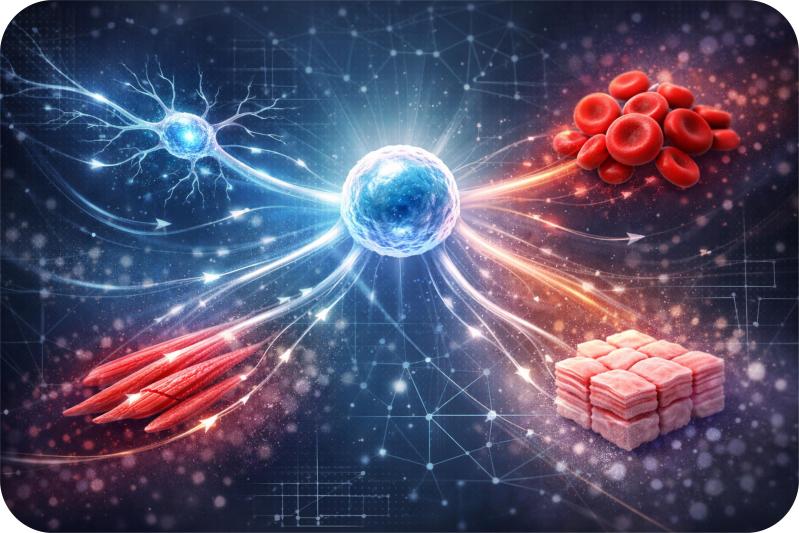Earth is a watery planet, in fact, water covers nearly 71 percent of our planet. It exists in our atmospheric air as water vapor and in ground flora as moisture within the soil.
Water is one of the main components that we look for in extra-terrestrial planetary space.
Now, imagine being allergic to water. Doesn’t it sound weird. In fact, we could have left it in our fables had the condition not surfaced in humans.
Michaela Dutton, 21, developed a one in 230 million water allergy after giving birth to her first child, confirmed The Telegraph. While for Rachel, diving into a pool would be like swimming in potent bleach, reported BBC.
What exactly allergic to water means?
Water allergy also known as aquagenic urticaria (AU) is an allergic condition where people develop rash, hives and red spots on body after contact with water. Whether it’s hot or cold it doesn’t make any difference. The problem persists even after the purity or salt content in water is improved.
Hives that develop due to aquagenic urticaria are itchy and painful. It develops on body most typically on torso, neck and back. It generally goes away after 30mins to 2 hours.
Other triggers include tears when hit cheeks and sweat pouring down the skin.
An old research proposes aquagenic urticaria is more common in women relatively and majority of them get diagnosed during puberty.
What causes water allergy?
Exact reason behind aquagenic urticaria or the water allergy is still unknown. Researchers speculate chemical disinfects in drinking water, like chlorine and chloramine, that cause the reaction, rather than contact with water itself.
The allergy is due to the release of histamine. The substance that immune system releases as a defense mechanism to ward off the harmful substance. This is turn might trigger the allergy like symptom.
Aquagenic urticaria diagnosis
The cause of aquagenic urticaria is still not known. Nevertheless, there have been two preferred diagnosis:
- Clinical history: patient’s past and present health history is correlated with the current state of health.
- Water challenge test: interaction between water and a component in or on the skin or oil is studied. One approach suggests that substance formed by this process results in perifollicular mast cell degranulation – the process by which cytoplasmic granules of mast cells release their contents – with release of histamine
Water allergy treatment
Tolerance to aquagenic urticaria cannot be acquired even after medications. Local application of antihistamines before water exposure has helped in reducing the hives.
Also, following barrier agents might help control symptoms:
- Oil
- Petrolatum or petroleum jelly
- Water emulsion creams
Is aquagenic urticaria curable?
At present, treatment of aquagenic urticaria is insufficient. Long term use of antihistamine is often suggested.
Cases where antihistamine doesn’t work, topical treatment that acts as a barrier to water contact is recommended.
UVB phototherapy treatment is another suggested therapy although, it does come with its side effects as well. The UV light initiates epidermal thickening, which causes decrease in water penetration.
The radiation also keeps mast cell degranulation under check, thus decreasing the activity of mast cells.
Also, stanozolol, an orally active and anabolic steroid, has testified to control systemic symptoms of aquagenic urticaria.
In certain cases, antihistamines were also replaced with omalizumab.
How many people are allergic to water?
As per a 2016 paper published in the Journal of Asthma and Allergy, nearly 50 cases of aquagenic urticaria are reported so far.
Can you drink water if you are allergic to water?
Yes, drinking water will not be a problem in itself. However, spilling on skin has to be avoided at all cost, since aquagenic urticaria triggers only when water comes in direct contact with outer skin, reports the U.S. NEWS for Health.
Pool parties and rainy day are the allergy triggers that initiates life disruption for people suffering from aquagenic urticaria.
Obviously, these people can’t avoid element that covers nearly 70% of the planet, they have to take some serious precautions like using sanitizers or wipes in place of water for washing hands.
While bathing baking soda in water is used to avoid any reaction.
What do you drink if you’re allergic to water?
People with this condition avoid consuming fruits and vegetable with high water content. They prefer drinking milk and diet soft-drinks instead of tea, coffee, or juice.
Rare and uncommon allergies
Allergies are not just limited to one element as it is a defense mechanism of our immune system to any foreign substance. It could be anything from dust, medicinal salt, pollen, insect, pet, cattle, food, drink, metal, sea food, alcohol, fruits, grass, wood etc.
Immune system classifies it as a foreign invader that has no place within the bodily ecosystem. Hence, fights it off through the common symptoms of allergies.
Having allergic in itself is not bad but when it disrupts the regular body functions, it becomes an annoying agent. The more respective allergens in the environment, the greater will be the allergy symptoms.
Allergies vary from person to persons. Mild allergy for some could be severe to others.
Common signs and symptoms that a person may experience during allergies are:
- Sneezing
- Coughing, tightness in the chest and shortness of breath
- Itchy eyes and skin
- Watery eyes
- Throat irritation and infection
- Fatigue
- Skin rash
- Hives
- Red spots on skin
Some of the rare and uncommon allergies are not just limited to water but also to air and sun.
Can you be allergic to air?
Our living environment contain numerous microbes, which we aren’t even aware of. In most of the cases, any one of the microbes can become a source for allergens, that further triggers the allergic reactions.
Air allergies are mainly due to:
- Pollen
- Mold spores in the air
- Indoor dust, mainly resides in sofa, bed, pillow, wardrobes, air-conditioners, other appliances etc
- Animal hair, furs, feathers
- Indoor insects like cockroaches
- Dust mites
- Pet rodents
- At times, indoor plants
- Carpets
Antihistamines are the most common and effective treatment against indoor and air allergens.
Can you be allergic to sun?
Sun allergy occurs when immune system is sensitive to sunlight. Network of cells and proteins that constitute the immune system considers sun-altered skin as foreign cells, thus triggering allergic reactions.
Triggered reaction is seen as rash, blisters, itching or pain, sun burn or hives on sensitive skin. Although sun allergies are not reported that frequently as it is tolerably mild.
How do you treat sun allergy?
Photosensitivity – sensitivity to ultraviolet (UV) rays from the sun- can be avoided by following steps:
- Try to stay out of sun during peak hours of the day, like 10 a.m. and 4 p.m.
- Instead of exposing lots of sunlight in one go, increase your time gradually. This will help your skin cells to adapt to sunlight progressively.
- UV-blocking sunglasses and protective clothing, like long-sleeved shirts are a must. Avoid loose and thin weaved fabrics as UV rays can easily pass through them.
- Broad-spectrum sunscreen with an SPF of not less than 30 is recommended. It has to be reapplied every 40 minutes in case of swimming or perspiring else every two hours re-application is must.
Overall, some amount of regular sun exposure is probably the best option. After all, vitamin D is equally important for bone growth and calcium absorption.











